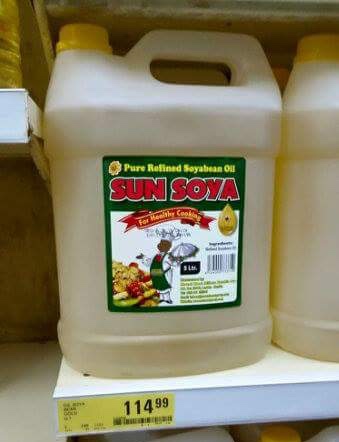
The Consumer Unity Trust Society – CUTS has contented that the ban on the importation of edible oils has contributed to the rising prices of cooking oil on the market. Cooking oil prices have recently skyrocketed leaving consumers with limited options.
CUTS Programme Manager Ishmael Zulu said the high prices of cooking oil currently obtaining on the market is a concern as it has a direct impact on the cost of living for the average Zambian citizen. Statistics show that Kwacha based salaries and incomes have not risen to match the sharp rise in prices of commodities.
Speaking in an exclusive interview with the Zambian Business Times – ZBT, Zulu said government should meet and engage the local manufacturers of edible oils in order to agreed what can be done to help them reduce their cost of production.
Zulu said the cost of doing business in Zambia has increased over the last two to three years and this has in turn made the cost of products that are produced locally more expensive, as some have some imported inputs and operational costs that are dictated by the exchange rate.
“Locally, we have seen a sharp increase in the prices of edible oils on the market, this is something that consumers have bemoaned and it’s a concern because oil is an essential commodity which is used in almost all of our day to day lives”, he said.
He however said that external competition can be used to nudge the local manufacturing sector to innovate, adding that competition is good because it ultimately benefits the consumers.
“When you have a healthy competitive business environment, you have businesses creating higher quality goods and this would allow consumers to have a wider variety. If they feel a certain good or brand is not up to their standard or is too expensive, they can select another good and what it translates into is a higher quality of goods and services that are offered on the market”, he said.
Zulu said the principles of trade emphasize the importance of having a free flow of goods and services in the economy.
“For example when you put an export ban on products such as maize, it limits the capability of farmers to plan ahead of the farming season, so similarly when you are putting in place bans on goods such as edible oils it does limit the flow of goods from one country to another and it has devastating impacts in the long term”, he said.
He also noted that the ban can be connected to the price fluctuations of soya beans because farmers are not sure whether they would make a profit or loss on the production of soya beans, so there is a correlation that can be established throughout the value chain of the production of cooking oil.
“Soya beans is one of the crops that has been identified as a key diversification crop away from maize, so some of these bans do have an impact on the production of soya beans and it can explain why there is a lot of fluctuation in the prices of soya beans year in year out”, he said.
The ministry of Agriculture has been challenged to be availing the public a detailed study with empirical evidence that a ban on imports would not result into sharp increases in prices.
Technocrats in government who are responsible for policy decisions have further been challenged to not only issue bans but announce follow up steps that will ensure that consumers are protected from sharp consumer goods price increases. There is also an option of using a combination of import or export quotas which can be used to keep prices stable.







